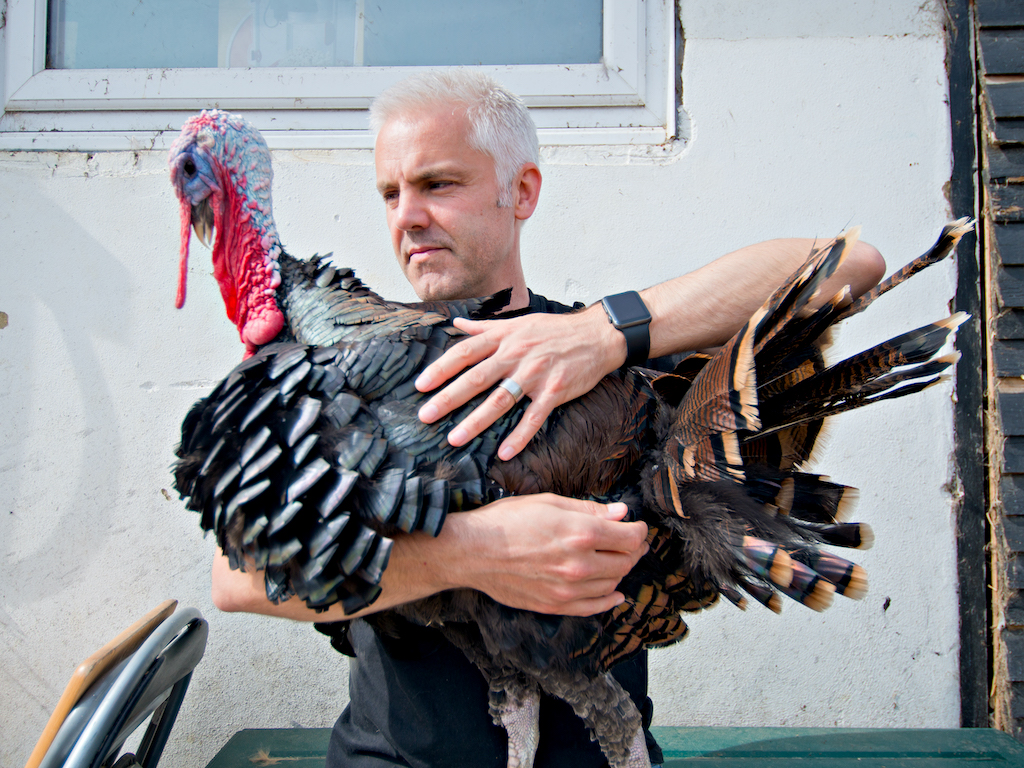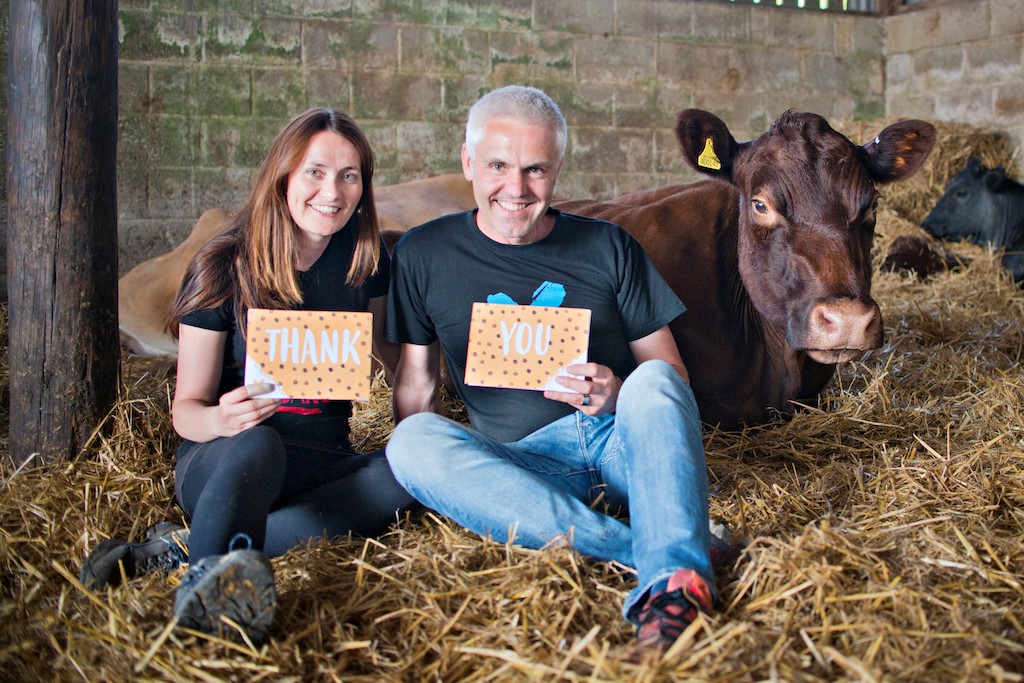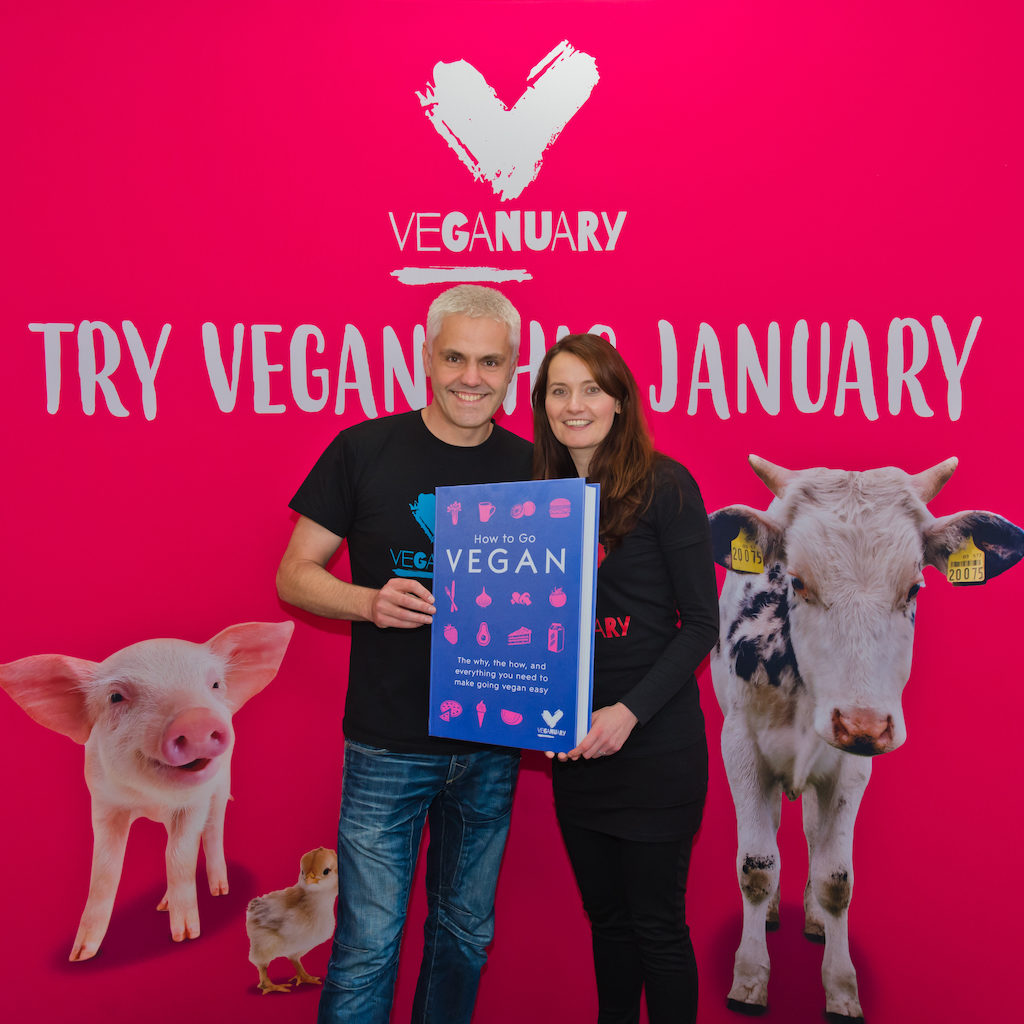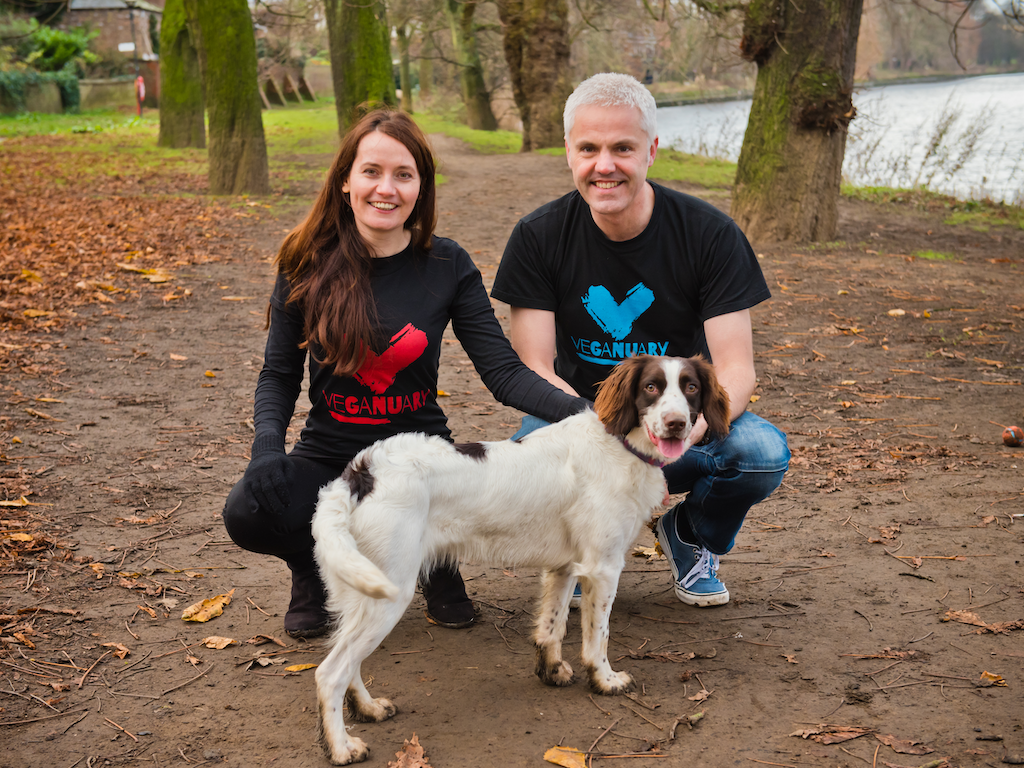8 Mins Read
In 2014, Matthew Glover and Jane Land created Veganuary, a brand new movement inspiring people to take the challenge to go vegan for the first month of the year. Since then, it’s spiralled into a global phenomenon, attracting over a million people to take part in the campaign and raising awareness of the whole range of benefits that come with adopting a plant-based diet – for animals, health and sustainability. We recently had the opportunity to chat to Glover, who spoke to us about how he ended up founding Veganuary, what’s in store for the future of the plant-based movement and why he thinks it’s going to be the best year yet to participate in the campaign for January 2021.
GQ: You started Veganuary back in 2014. Can you tell us a bit about your story and where the inspiration for the idea came from?
MG: I’d taken part in a campaign called Movember, where people grow a moustache for November to raise money for prostate cancer research and men’s health charities. This was in my pre-vegan days, and I remember it being quite a fun campaign and lots of people were doing it at the time. I started chatting with my wife Jane about what we could do for animals and what would have the biggest impact as two individuals. We had taken part in street activism and demonstrations, but they didn’t feel like they were making much of a difference and felt like we were getting ignored.
We discussed the Movember campaign, and thought – what if we asked people to go vegan for a month as a challenge? Obviously, with January being a month where people typically make New Year’s resolutions and it marking a time of new beginnings, we thought it was the best month for the campaign. So we put the two words together, like many other month-based campaigns out there like Stocktober and Dry January, and came up with Veganuary. It was something that the media and people understood, as it’s kind of a well-trodden path here in the U.K. to have campaigns based on a month and having a weird word for it.

GQ: Veganuary has really grown since it first started and it recently reached the milestone of one million participants. What’s it like knowing that the movement you founded has really taken off?
MG: We’re really proud of what happened. It felt like Jane and myself seeded it, but now it has its own momentum and things happen without us even having any input! We’d always had a desire for it to be an open source concept – that anyone can get involved and take part and we’re really glad that this has happened.
In the first year, we saw the Ocado website put our logo on there within the vegan category, and they had never asked us about it. But we weren’t thinking about our trademark, all we were thinking was how great it was that they were getting involved. So it’s just really amazing to see how Veganuary has grown year-on-year. This year is going to be the biggest one yet. And while it’s still got room for growth in the U.K., we believe that the real exciting opportunity is in the rest of the world and that’s going to be the strategy going forward.
GQ: What do you think was the reason behind the success of Veganuary? What does it take to build a movement like that?
What we did was create a platform that could then be adopted by food businesses, bloggers, influencers to really help it take off. It was more setting the groundwork to allow others to bring it to the next level.
MG: In the early days, there was a lot of hard work going into creating the idea. But it captured the imagination of the British public to begin with, as it fit into the public consciousness as a concept of “going without” – like we do with drinking or smoking. It also took a lot of networking and speaking to as many people as possible. I think we were really lucky that when we first started, it was a time when the vegan movement was starting to flourish. What we did was create a platform that could then be adopted by food businesses, bloggers, influencers to really help it take off. It was more setting the groundwork to allow others to bring it to the next level.
GQ: There’s no doubt that veganism has really grown in recent years, even in the past few months there’s been far greater attention on how the way we eat matters, from a health, ethical and environmental standpoint. What do you think is the main driver that motivates the mainstream consumer to go plant-based?
MG: My view is that it depends on the country. In the U.S. for example, I’d say that people are motivated by health reasons when it comes to adopting a plant-centric diet. In Scandinavia, it tends to be for sustainability and environmental reasons. Then in the U.K., it’s about animals – in the early years of starting Veganuary, the primary motivations that participants cited was concern about the welfare of animals. But I think looking at it on a global basis, it’s clear that animal agriculture is unsustainable and we’re seeing it in the news a lot more in the past few years to amplify awareness of that. People are now much more aware of the need to change the way we eat for the benefit of the planet, other species, for wildlife generally and future generations of humans.

GQ: Do you think that we’ll ever reach a point where the majority of people are plant-based?
MG: I hope so. But whether or not I think so is irrelevant. We just have to keep trying our best and that’s what I’m focused on in my work. There’s certainly a lot that still needs to be done. We need better products on the market, we need for the price and availability and taste of these products to improve. We need governments to get involved and remove subsidies and incentivise people to eat more plant-based foods. I’m nervous about making a prediction because it’s a long road ahead, but I can say I’m very hopeful.
GQ: You recently started a new non-profit vegan investment fund, Veg Capital. Can you talk a bit about that?
MG: With Veganuary being working mostly on the demand-side – getting more people to choose plant-based foods and adopt a vegan lifestyle – I’ve started to feel like it’s great to encourage people to do that, but if they’re finding it too difficult to sustain this habit, then it’s not going to be a long-term change. So we decided to set up this fund and we have some mission-aligned investors backing us. The idea is to find exciting entrepreneurs and great founders with products that are helping to remove as many animals from the supply chain as possible, and to provide seed funding to help nurture their businesses.
We started the fund this year and have invested in around 10 to 15 companies so far. The main thing we look at with every opportunity is: how is this company helping to remove the needle on animal agriculture? We’re looking at businesses creating alternatives to meat, dairy, eggs, fish, seafood, as well as FMCG-type products like plant-based ready meals.
We need better products on the market, we need for the price and availability and taste of these products to improve. We need governments to get involved and remove subsidies and incentivise people to eat more plant-based foods.
GQ: What are some of the recent animal-free investments that you can share?
MG: There’s a whole range. We’ve invested in Grounded, a plant-based protein shake brand, and THIS, a food tech creating plant-based bacon and chicken. There’s also vegan milk brand Mighty Pea, plant-based pizza makers Purezza and Good Catch Foods, the U.S. startup behind plant-based tuna.

GQ: It’s been a record year for alternative protein investment, in Asia and globally. Do you think mainstream investors are turning their backs on big meat?
MG: Yes, to some extent. We are seeing a number of investors that aren’t the typical vegan investors now getting involved and I’ve certainly spoken to a number of funds that are focused on climate change who are now looking at the alternative protein space too as a solution to that challenge. There’s also IPOs of plant-based companies like Beyond Meat and The Very Good Food Company, and it can’t all be vegan investors helping to push these forward. So absolutely, there certainly seems to be a buzz around it and it’s definitely moving much faster in recent years than ever before. Even when we first came up with the idea of Veg Capital two years ago, there didn’t seem to be anyone doing something like that at the time, but there’s a lot more of us around now.
GQ: Yes, sustainable investing in general has really taken off too. Do you believe that this is the future?
MG: Again, I hope so. There is so much news about sustainability and environmental challenges that I think there will be more investors looking to not just make money but to do something good with their funds. Obviously, there’s still a ton of money invested into fossil fuels and the meat and dairy industry, but we’re now seeing things move in the right direction and hopefully that trend continues.
For so many reasons, it’s going to be the easiest year to take part – and it’s so important that people do.
GQ: Going back to Veganuary, what’s the one thing you’d say to someone who isn’t sure whether they can commit to going plant-based for a month? How would you convince them to take the pledge, any tips for participants?
MG: This year is going to be the easiest year ever to do Veganuary because people aren’t travelling or eating out as much. So if you’re in a lockdown position, then you’re not being affected by those social challenges of going out to restaurants. It’s also never been easier to get vegan food delivered to your house, order plant-based meals via delivery apps, grab a vegan ready meal at a supermarket. There are so many vegan recipe books too to help guide you to cook yourself, not to mention how the plant-based products themselves have improved dramatically over the years. So for so many reasons, it’s going to be the easiest year to take part – and it’s so important that people do. A lot of people who have taken part in the past find themselves exploring new foods and getting a much more diverse range in what they eat. I would encourage anyone to give it a go.
GQ: Finally, we always ask – team rice or team noodles?
MG: Noodles every single time! Having said that, we sometimes get Chinese delivered and we mix both rice and noodles…I’m not sure whether that’s allowed!
All images courtesy of Matthew Glover / Jane Land.




